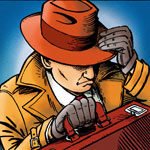"Dirty" journalism


In the U.S., opinion pieces without attribution are considered "dirty" journalism. Even though I am affected by this myself with my E-3 column, I can agree with this generic approach.
Real life, however, rarely adheres to theory: opinion pieces reflect the author's subjective view. His or her assessment, criticism and analysis can be a valuable contribution - but the text is always directly connected to the author.
In my case, I would be very surprised if one of my colleagues from our SAP regulars' table would write the same - similar perhaps.
"So you see yourself as a unique writer" my wife commented on the subject of "dirty" journalism and my anonymity, which she hopes will end sooner rather than later: Since in my case writing is not possible without anonymity, if it ceased, my wife would no longer have to correct the texts.
It may be dirty journalism to publish an opinion piece without the name that stands for that opinion. But what does the other side look like? My anonymity protects me from manipulation and influence.
As n/n, I have the privilege to think about what is happening in our community in peace and without shouts from outside. I do not have to take into account advice because people want me to write that and not something else.
The n/n is the opposite of my official work, where other opinions are welcome, discussed, compromises are found. For me, anonymity is a protective mechanism and the opportunity to share my knowledge and experience for the benefit and benefit of others.
Perhaps the n/s writing alone here produces "dirty" journalism, as the New York Times was accused of for publishing the anonymous piece on US President Donald Trump.
Perhaps democracy is the worst of all forms of government, but the n/n knows no better form. As long as my anonymity exists, I allow myself to continue writing.
Back to work: Because editor-in-chief Färbinger cannot yet know, I take over his journalistic task. A press release from SAP in April of this year read:
"SAP is also introducing new rules in organization and governance that provide for a strict separation between the sales organization and processes and the audit organization and its processes.
To this day, disagreements continue to arise between customers and SAP over how older contracts should be interpreted with regard to the new digital requirements.
In some cases, this has a negative impact on parallel discussions on the acquisition of new software. The organizational changes on the SAP side now allow these issues to be separated and enable independent discussions."
The announced organizational changes at SAP also include an instance that is to evaluate, clarify and perhaps resolve "license conflicts" in advance, independently of SAP. This important and honorable instance has now been established.
There is one leader who is not on the SAP payroll and is highly regarded throughout the SAP community for licensing expertise, SAP audits, IT asset management and governance.
For now, everything is still unofficial and my dedicated acquaintance is trying to build a competent team. Until the official announcement by our DSAG, I may reveal this much, that the new "SAP Governance License Leader" has already been featured once on the cover of E-3 Magazine.
Gerd Oswald is back - although he never actually left. After leaving the SAP Executive Board, he founded his own consulting company, thus becoming our DSAG member and helping SAP in difficult cases.
As an SAP ambassador, he is now perfecting his role, locking up his own company again and becoming an SAP Supervisory Board member as of January 1, 2018. In addition, he is practicing as a Leonardo front man and has written the foreword to the book "SAP Leonardo" published by Rheinwerk: May Digitization Succeed!






